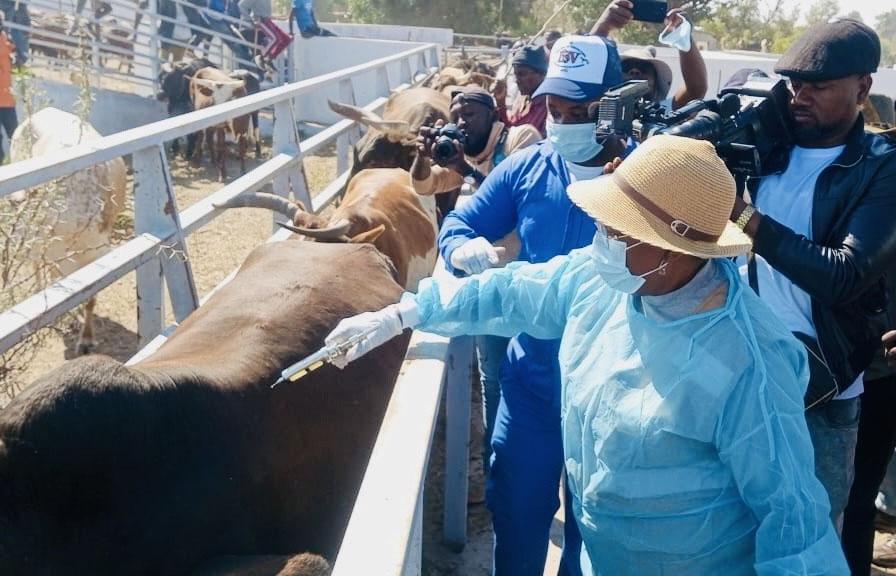Africa-Press – Angola. The province of Cunene will immunize around 80% of its cattle herd against contagious peripneumonia, hematic anthrax, symptomatic anthrax and nodular dermatitis, during this year’s animal vaccination campaign.
The operation that started this Tuesday, in the commune of Ombala yo Mungo, municipality of Ombadja, aims to reach more than 500 thousand heads of cattle, in the six municipalities of the province.
Along with cattle, the campaign, which will run for 90 days, will synchronize the vaccination of 20,000 pets, including canines, cats and monkeys, whose vaccines are already available in the province.
Speaking on the sidelines of the opening of the campaign, the provincial director of Agriculture, Livestock and Fisheries, Carlos Ndanyengondunge, said that the sector has one million and 200 thousand doses of various vaccines made available by the responsible Ministry.
These are 500,000 doses of contagious bovine peripneumonia, 300,000 of symptomatic anthrax and an equal number of hematic anthrax, 100,000 doses of nodular dermatitis, as well as 20,000 doses of rabies vaccines.
He said that the campaign involves the involvement of 120 brigade technicians distributed across the 20 communes.
Carlos Ndanyengondunge said that, annually, the Ministry of Agriculture and Forestry, through the Veterinary Service Institute and the Government of Cunene, carries out bovine vaccination campaigns for family farmers with the aim of combating diseases in animals.
He recalled that the livestock activity, with greater relevance for the extensive raising of cattle, goats, sheep, pigs and chickens, constitutes the main economic source of local families.
These animals, he said, have been ravaged by natural phenomena and diseases caused by the lack of continuity of vaccination coverage, in all regions, due to insufficient vaccines, technicians, complete logistics and means of transport.
For this reason, he appealed to local administrations to collaborate on logistical and transport sustainability, for the movement of technicians and cattle breeder mobilizers, in order to take the animals for vaccination and help with the construction and rehabilitation of the sleeves.
For her part, the provincial governor of Cunene, Gerdina Didalelwa, praised the implementation of vaccination campaigns to safeguard the health of animals and prevent deaths and illnesses caused by the consumption of contaminated meat.
Despite the insufficient doses available to achieve the coverage rate of the existing herd in the region, he indicated that it was necessary for the animals to be healthy, to ensure one of the main food sources for the populations.
“Cunene is an agricultural region, but, lately, it has been experiencing difficult situations due to the lack of rain. We are witnessing the death of animals due to the lack of pasture and water, and we have to do everything we can to prevent them from dying from diseases,” she maintained.
This time, he encouraged administrations to work with traditional authorities and communities in general, to reinforce the mobilization and awareness of breeders to take their cattle for vaccination.
The governor also highlighted the need for breeders to take the animals for transhumance, as due to lack of rain this year, in which the province did not record moments of floods, the consequences of drought such as hunger, lack of pasture and water for people and animals may be higher.
Didalelwa highlighted that the construction of the Cafu canal is alleviating the water shortage in the communities through which the canal passes, but that there will not be enough pasture to feed livestock.
For this reason, he said, it is essential to move the animals to the municipalities of Cuvelai and Cuanhama.
At provincial level, 335 vaccination sleeves are controlled, of which 290 are rustic, made of wood, and 45 permanent.
Data from the Government of the province of Cunene points to the existence of one million and 100 thousand head of cattle, 78% of which are owned by traditional breeders.
For More News And Analysis About Angola Follow Africa-Press






